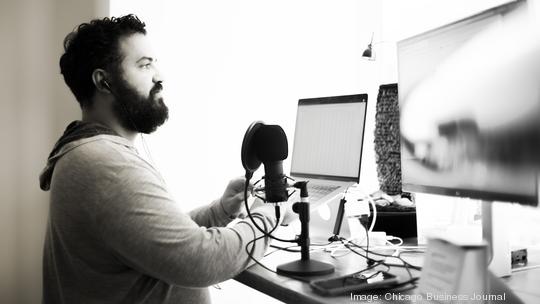
Chicago startup Cameo pioneered celebrity shoutout video messages when it launched its marketplace in 2017, and since then has grown to more than 300 employees and earned a $1 billion valuation as celebs and fans have flocked to its app. It sold $100 million worth of video shoutouts last year and is aiming to do between $200 million and $300 million this year.
That success has brought with it its share of knock-off attempts from tech giants like Facebook and TikTok, and even from a 100-year-old greeting card company.
American Greetings, the second largest greeting card maker behind Hallmark, operates an e-card service called SmashUps, which are customized video cards that feature celebrities that offer personalized greetings, including Dolly Parton and William Shatner. This week it added Alicia Keys to its lineup, who will put your name in the lyrics of her song "New Day."
American Greetings' videos are a little more formulaic that Cameo—you request the video by selecting the occasion, like "Birthday" or "Juneteenth," and then select from a dropdown of about 1,000 different names to choose from. So if your loved one's name isn't in that list, you're out of luck.
In May, American Greetings partnered with Jay-Z's Roc Nation to add more celebrities to its SmashUp line.
While not a 1-to-1 comparison to Cameo, American Greetings' investment in celebrity video messages shows how serious the card giant is about bringing fans personalized cards from famous artists. But they're not the only company encroaching on Cameo's territory.
TikTok is testing a feature called Shoutouts that lets users request and pay for video messages from TikTok creators, BuzzFeed reported this week. It's so far only available in select markets, like Turkey and Dubai, and it's unclear if and when the feature could be rolled out more broadly.
Cameo's talent ranges from athletes, actors, and musicians, as well as social media stars, and it even has a TikTok category on its website. In 2019 Cameo hired TikTok's head of global marketing, Stefan Heinrich Henriquez, as its CMO, though he left the company a year later.
Facebook is developing its own Cameo-like tool, called Super, which lets fans pay to interact with celebrities and content creators during live broadcasts. Essentially serving as virtual fan "meet and greets," Super has held only a handful of events so far and has gained little traction.
In 2018 Google launched a product called "Cameos," a video Q&A app designed for celebrities and other public figures. It lets celebrities answer fan questions, with results showing up in Google search results.
Smaller tech firms are also operating in the celebrity shoutout space, including Vidsig, a live video chat app based in San Francisco that gives fans one-on-one video calls with celebrities, a feature that Cameo also offers. In Chicago, startup Real Talk Live provides one-on-one video chats with celebrities. And The Players Trunk, a startup that helps former college athletes sell game-worn gear and current athletes sell merchandise, offers a feature for fans to get personalized videos from players.
Despite efforts by companies large and small to cut into Cameo's marketshare, they've so far proven largely unsuccessful—though that's not to say one of these deep-pocketed tech firms won't invest heavily in its Cameo clone in the near future. But for now, Cameo, which CEO Steven Galanis has said plans to eventually go public, still owns the celebrity video message space.



